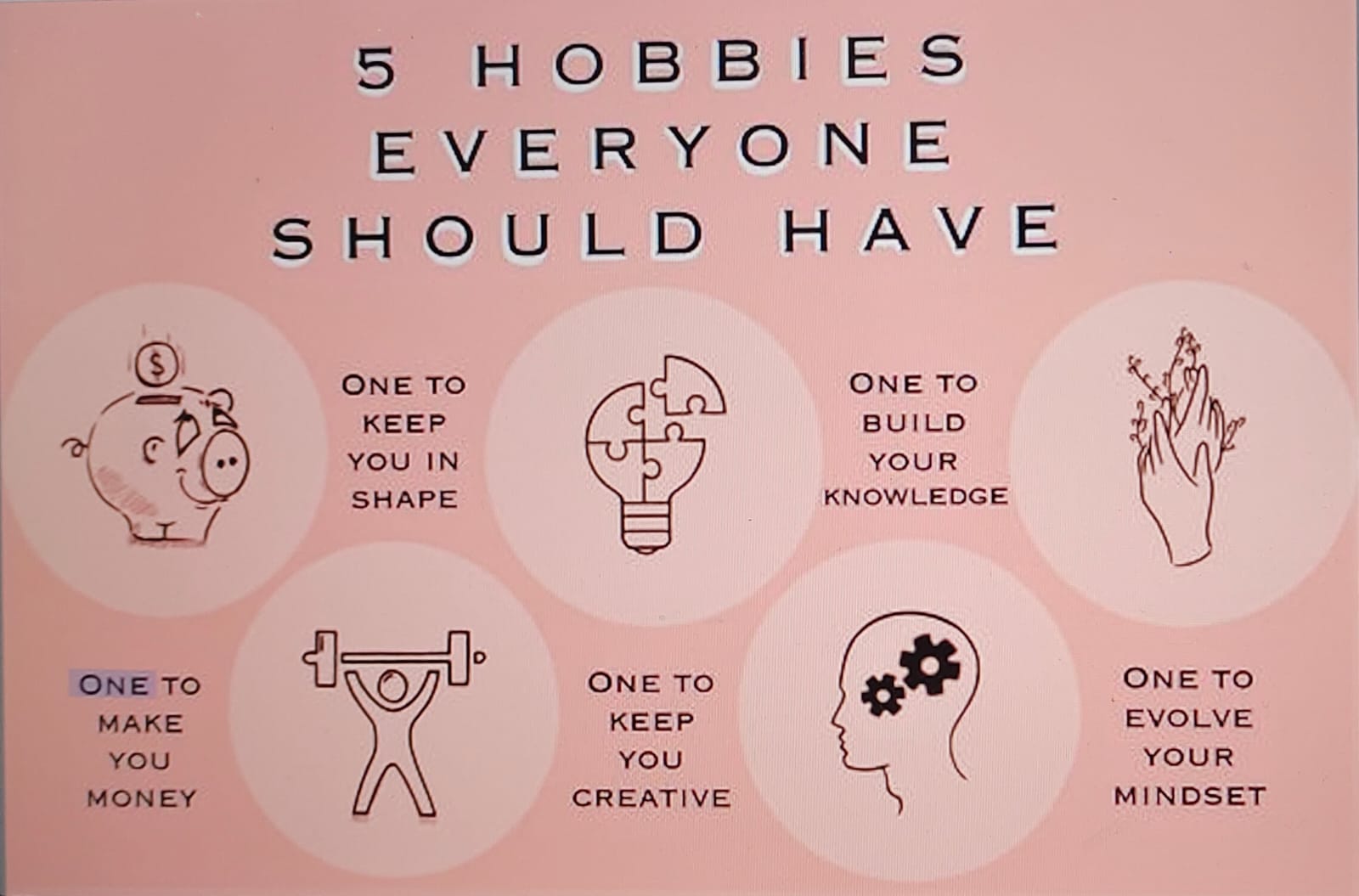Hobbies are often seen as mere pastimes, activities we engage in to unwind and have fun. However, their benefits extend far beyond personal enjoyment. Engaging in hobbies can have a profound impact on your professional life, enhancing your skills, boosting your creativity and improving your overall well-being.
Let’s explore how hobbies can be a powerful ally in your career.
1. Enhancing Skills and Competencies
Many hobbies require skills that are transferable to the workplace. For example, playing a musical instrument enhances your coordination, patience and ability to concentrate—qualities that are valuable in any job. Similarly, hobbies like knitting or model building improve your attention to detail and problem-solving skills.
If you are into sports, you are likely developing teamwork and leadership skills. Whether it’s coordinating strategies in a game of cricket or leading a group hike, these experiences can make you a better collaborator and leader at work.
2. Boosting Creativity
Creative hobbies like painting, writing or playing a musical instrument can significantly enhance your creativity. When you regularly engage in activities that stimulate your imagination, you bring a fresh perspective to your professional tasks. This creativity can lead to innovative solutions, better problem-solving and more effective communication.
For instance, a marketer who enjoys photography might bring a unique visual angle to their campaigns. The mental flexibility gained from creative hobbies helps you think outside the box and come up with new ideas.
3. Reducing Stress and Preventing Burnout
The demands of professional life can be overwhelming, leading to stress and burnout. Hobbies provide a much-needed escape, allowing you to relax and recharge. When you engage in activities you love, your brain releases dopamine, a chemical that promotes feelings of pleasure and relaxation.
Having a regular hobby can act as a stress reliever, providing a healthy balance between work and personal life. This balance is crucial for maintaining mental health, ensuring you stay motivated and productive at work. A well-rested mind is more focused, efficient and capable of handling professional challenges.
4. Networking Opportunities
Hobbies can also expand your professional network. Many hobbies involve social interactions, whether it’s joining a book club, a golf club, a marathon group, a cycling group or a public speaking group. These activities bring you into contact with people from diverse backgrounds and professions, broadening your social and professional circles.
Networking through hobbies can lead to unexpected opportunities. You might meet someone who can offer career advice, introduce you to potential employers or collaborate on a project. These connections, forged in a relaxed and enjoyable setting, can be incredibly valuable for your professional growth.
5. Improving Time Management and Discipline
Balancing a hobby with a full-time job requires effective time management. Committing to a regular hobby teaches you how to allocate time efficiently, set priorities and stay organized. These time management skills are directly applicable to your professional life.
Additionally, hobbies that require regular practice and dedication, like learning a language or playing an instrument, foster discipline. This discipline can translate to your work habits, making you more persistent and focused on achieving your professional goals.
6. Enhancing Communication Skills
Some hobbies, especially those involving group activities or public performance, can improve your communication skills. Whether it’s coordinating with teammates in a sport, discussing strategies in a board game or performing in front of an audience, these experiences can make you a more effective communicator.
Strong communication skills are essential in virtually every profession. They help you articulate ideas clearly, build better relationships with colleagues and navigate workplace conflicts more effectively.
7. Promoting Lifelong Learning
Engaging in hobbies often involves learning new skills and acquiring knowledge. This habit of continuous learning keeps your mind sharp and adaptable, qualities that are highly valued in the professional world. Employers appreciate individuals who are willing to learn and grow, as they can adapt to changes and take on new challenges with ease.
Whether it’s learning to cook a new cuisine, mastering a craft or diving into a new sport, the enthusiasm and curiosity you bring to your hobbies can translate into a proactive attitude towards professional development.
In conclusion, hobbies are much more than leisure activities. They play a crucial role in enhancing your professional life by developing transferable skills, boosting creativity, reducing stress, expanding your network and promoting lifelong learning. By investing time in hobbies, you not only enrich your personal life but also equip yourself with tools that can lead to a more successful and fulfilling career. So, the next time you engage in your favourite pastime, remember that you are not just having fun—you are also building a better professional you.
Need professional help? Reach out to us using the link below for a free 30-minute introductory call.
Sign Up For The Introductory Call
Our experts are ready to assist you with personalized guidance tailored to your specific needs. Additionally, if your team requires support, visit our website for comprehensive solutions designed to enhance performance and drive success. We are dedicated to helping individuals and teams achieve their goals through expert advice and strategic planning.
www.highperformancealchemy.com
Don’t hesitate to connect with us and take the first step towards a brighter future.

